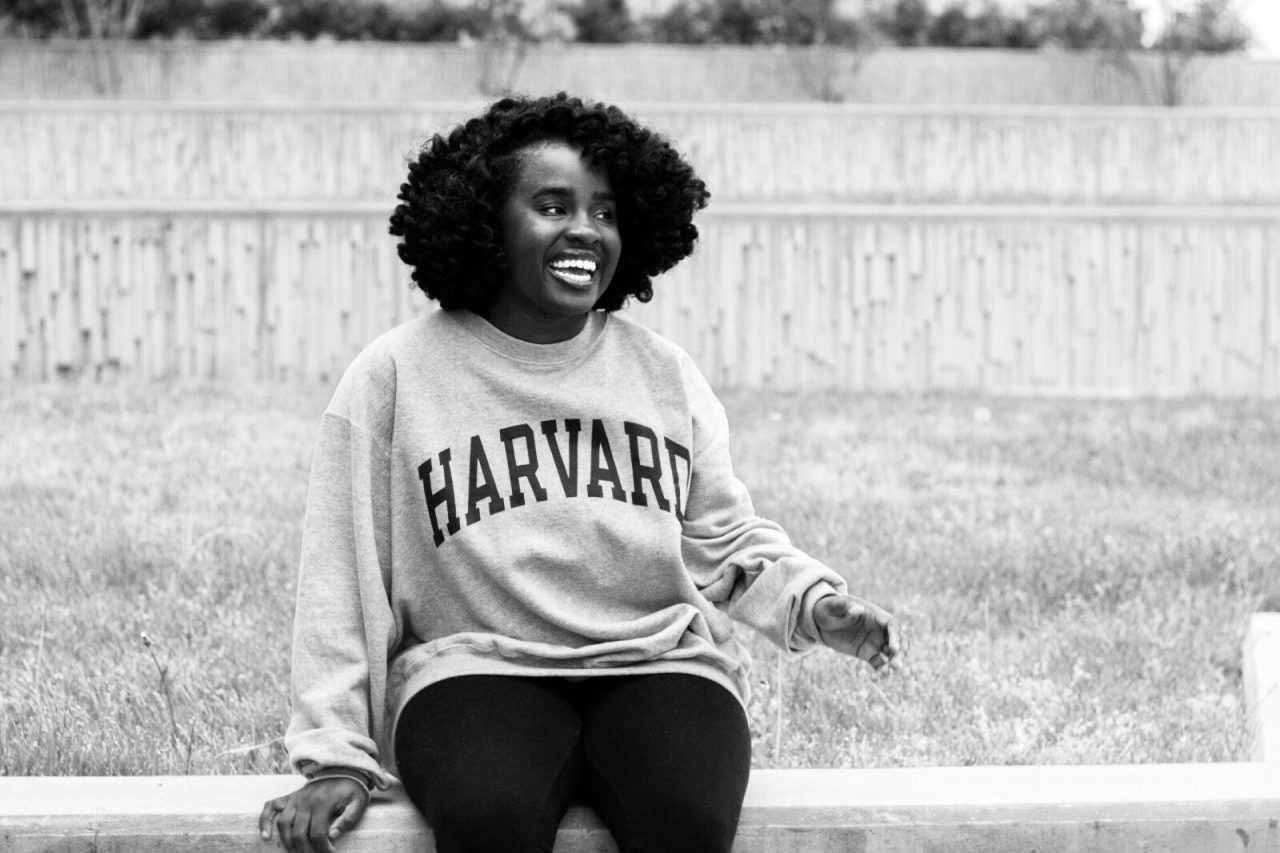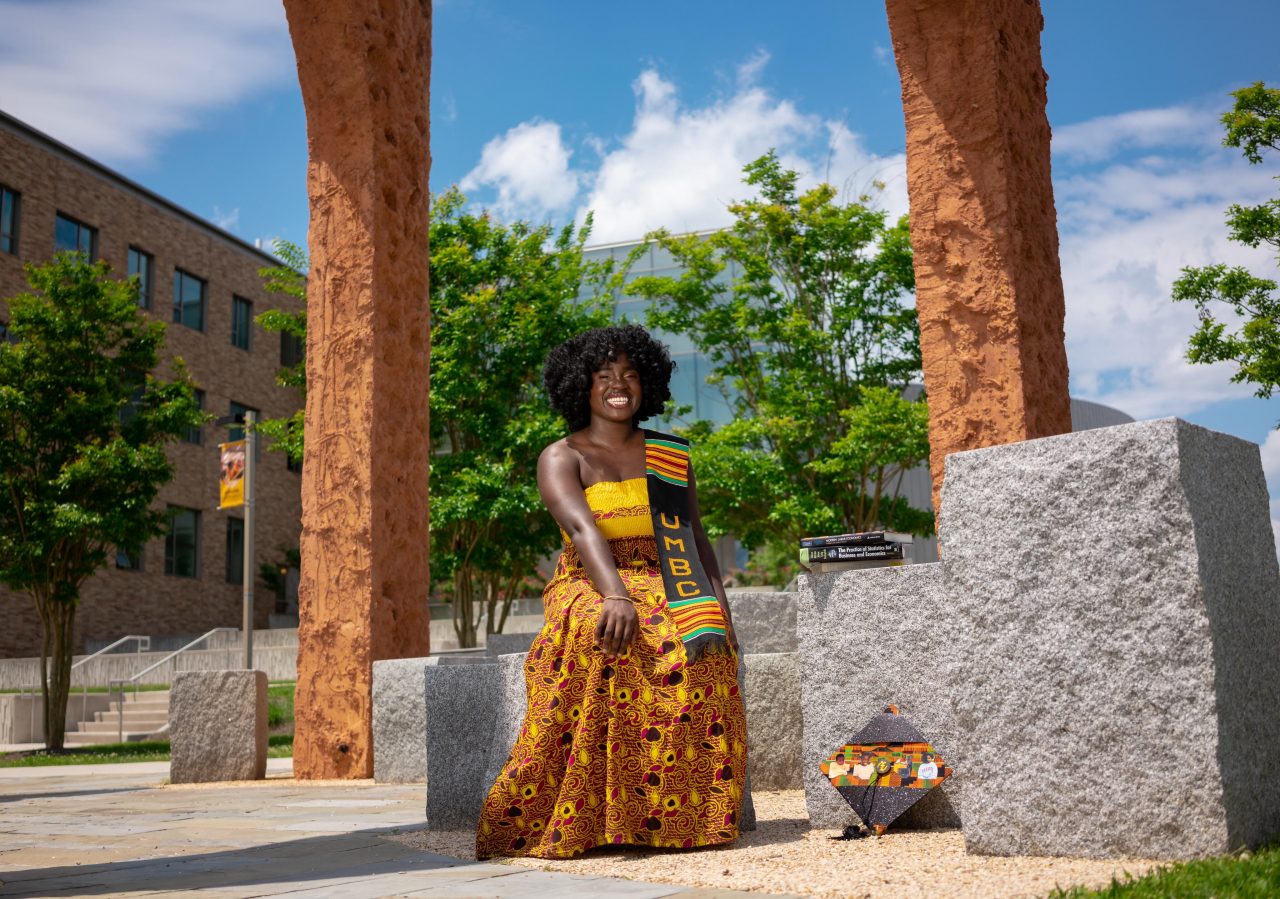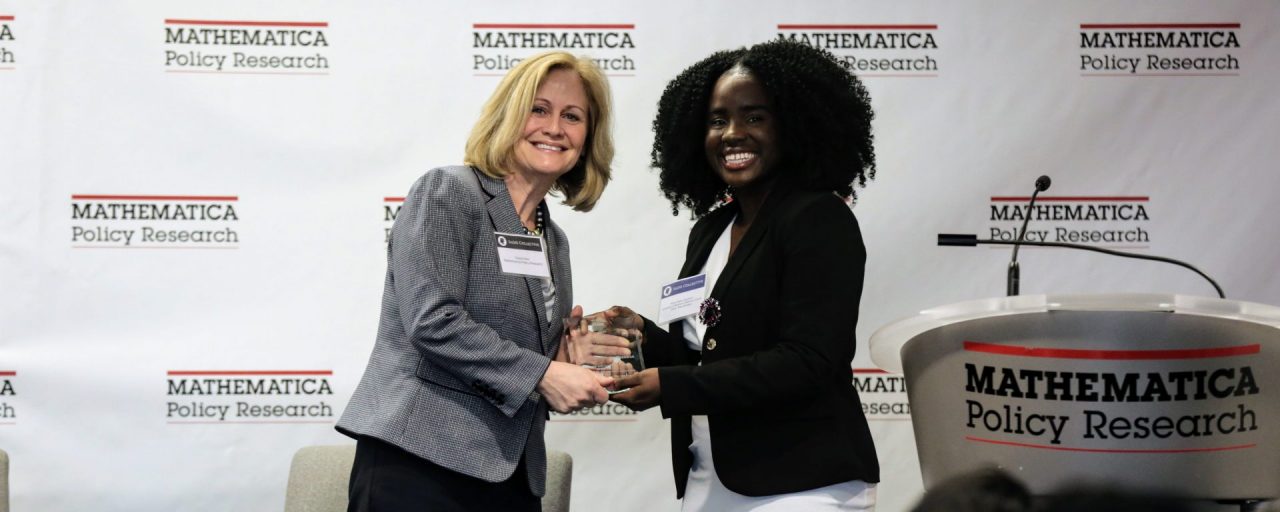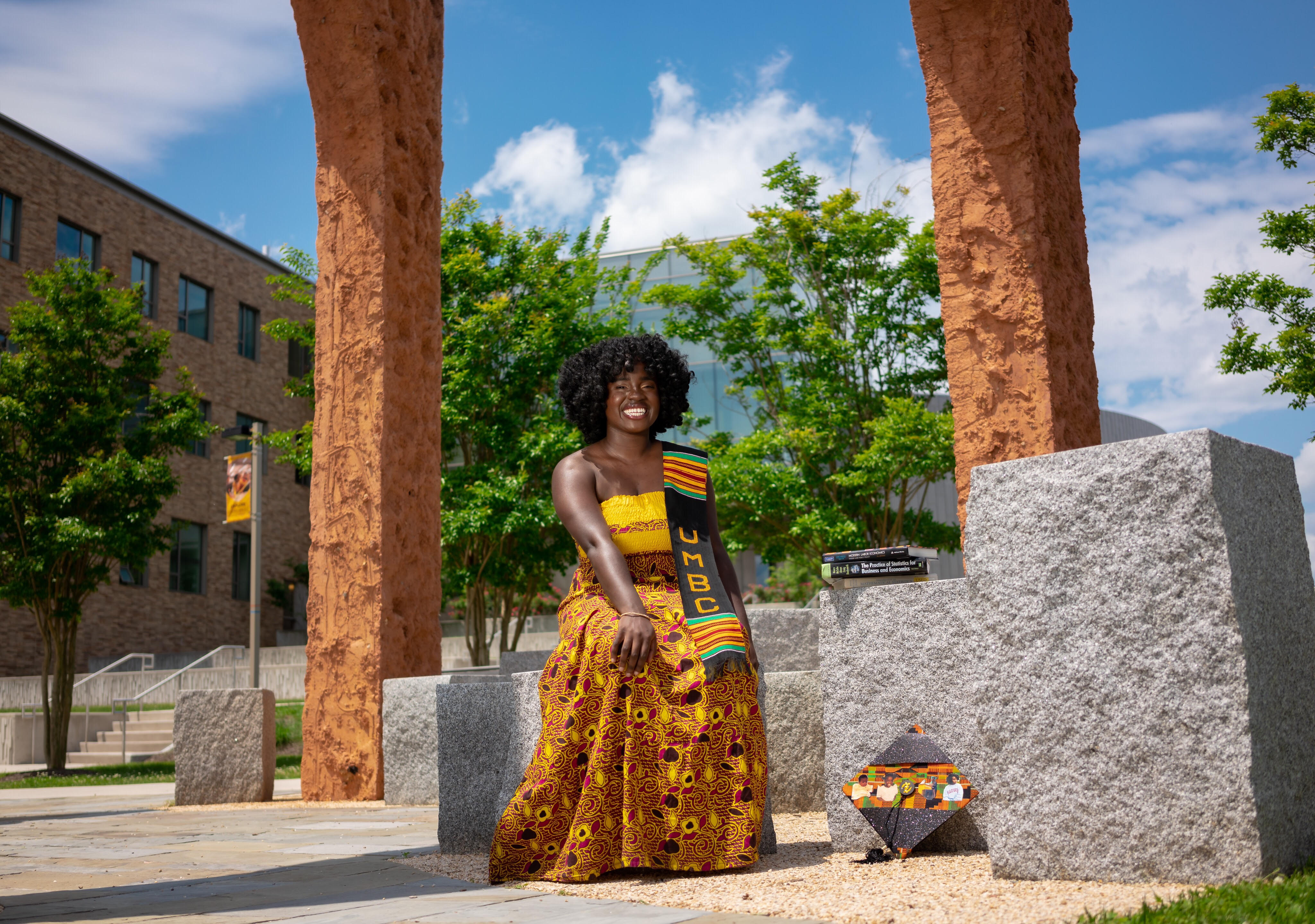Meet Anna Gifty Opoku-Agyeman, Co-Founder and CEO of the Sadie Collective
Anna Gifty Opoku-Agyeman was born in Kumasi, Ghana, but moved to the United States at a tender age. She recently graduated from the University of Maryland, Baltimore County (UMBC) with a Bachelor’s in Mathematics and minor in Economics.
At age 23, Anna has made a name for herself by being selected as a participant for this year’s Research Scholar Initiative program at Harvard University, as she prepares for a doctoral degree in Economics. She is also the Co-Founder and CEO of the Sadie Collective, an organization for Black women pursuing careers in quantitative fields.
GUBA had the opportunity of getting up close and personal with Anna to find out more about her remarkable story and how her organization is making a positive impact by encouraging more black women to develop an interest in Economics and Math.

When did you realize that you will pursue a career in Economics and Math and what motivated you to choose that career?
Growing up, my father and I talked about Ghanaian politics a lot. He was always willing to share his ideas about Ghana’s leadership and how education could further our country’s potential. These conversations I had with him lit a fire under my belly, and I became very passionate about understanding African development. I have since watched nearly every TED Talk with an African speaker or read magazine articles about the subject.
The motivation for me to pursue economics is the sheer possibility to tell stories about the barriers our people face through data. I ultimately want to serve my community in policy and business settings – locally, nationally, and globally. Ultimately, I believe that economics will allow me to achieve this goal in a significant way.
As a recent graduate of University of Maryland, Baltimore County, share with us your most memorable experience as an undergrad student?
I recently had an opportunity to reflect publicly in front of hundreds of prospective high school students about my collegiate experience. That moment for me was full circle; literally, five years ago, I too was applying to college, unsure of my path and the challenges that I would face. I had transferred to my alma mater after a semester at a large university, changed my major multiple times, and faced emotional and mental hardships throughout my journey. I was immensely grateful to have the opportunity to speak on several lessons that I learned along the way providing encouragement and offering advice to younger students.

Tell us more about the research you conducted on the relationship between early childhood malaria and educational attainment in Ghana.
It is a well-known fact that nearly everyone in Ghana is at risk for malaria; that’s really no secret. What we do not have a good grasp on is how the disease is affecting our productivity, especially as it relates to education. There was a study recently published by University of Ghana’s Dr. Justice Novignon [and co-authors] that found that malaria affects the bottom line and productivity of Ghanaian businesses. It is also clear from national and global initiatives that malaria is causing serious harm to Ghana’s economic growth.
This past year, I decided to ask whether early childhood malaria had a negative impact on school progression in Ghana. I used population survey data, gathered by the Ghana Statistical Service, and regional level malaria rates from the Malaria Atlas Project for my study. The question that I wanted to answer was whether experiencing a higher risk of malaria before entering primary school increased the likelihood that children would be delayed in their school progression.
What I found, after controlling for factors that could affect school progression, was that children from regions with higher early childhood malaria risk were more likely to stay back in school or drop out. Specifically, a 1 percent increase in early childhood malaria prevalence raises the proportion of children delayed in school, by 2 years or more, by 5 percentage points, which is a huge increase.
What necessary steps are you taking to ensure that your research makes a massive impact in Ghana and Africa as a whole?
First and foremost, I want to generate meaningful discussion within Ghanaian diaspora about malaria’s impact on education. Therefore, I have been sharing my research findings with Ghanaian media personalities and/or outlets. My next step will likely include visiting Ghana to present my findings to relevant parties and/or connecting with professionals whose work falls under the purview of the research question. There is also an economic lecture series, held by Ashesi University each year, that I hope to present at if given the opportunity. I can really see the research that I have done being used to inform policies surrounding how we educate young people about malaria. Students know that malaria is a harmful disease when it goes untreated, but I think that it is important that students also understand the potential impact the disease can have on their own educational journey.
Tell us more about the Sadie collective and share any success stories and challenges.
The Sadie Collective is an organization that empowers and equips Black women in the quantitative sciences by addressing the pipeline and pathway problem in economics, finance, data science, and public policy. I co-founded the organization with my friend, Fanta Traore, in August 2018. We were inspired to start the Collective once we learned that the number of Black women in the economics profession has been declining each year. Currently, I am serving my second-term as the CEO of the organization. Our biggest success to date is our historical conference. This past February, we hosted the first U.S. conference for Black Women in economics at Mathematica in Washington D.C. The event sold-out almost immediately, with over 100 guests in attendance and esteemed speakers from across policy, academia, and industry. We gained (and are still gaining) media attention from esteemed outlets such as Forbes, NPR, Quartz, and Bloomberg. The biggest challenge we have faced to date is that we are students and research assistants so our time is limited.

https://www.instagram.com/p/BywApcihDcw/
Who is your role model/Mentor?
Honestly, that’s a very hard question. I have a whole host of role models and several mentors whom I look up to. I am led by the exemplary example of my parents, consistently motivated by my educators, encouraged by my friends, and loved on by my siblings. These people [and others] make up a mentoring circle around me, and I feel blessed to have each of them in my life.
What does the future look like for you and The Sadie Collective?
Well for me, I am going to continue serving as CEO. I love the work we have been able to do together and for Black women in the field; there is also many ideas that we have regarding the vision of our organization. Broadly speaking, in February 2020, the Collective plans to host the second annual conference with some very esteemed guests, which is exciting. There has also been some talk about increasing our engagement nationally and eventually, globally, so that we can extend our resources and network across the world.
#SACE2019 was an amazing, inspirational event! We had young black women come from over 30+ institutions from all across the US and Canada to educate and inspire them about careers in economics. #ThankYouSadie #BlackEconomistsMatter pic.twitter.com/QNyFHqneLj
— The Sadie Collective (@SadieCollective) February 26, 2019
What are your thoughts on GUBA Enterprise?
GUBA Enterprise is an incredible initiative that has done so much to bring awareness to the excellence that lies within the Ghanaian diaspora, not only in the UK, but also across the world. What I really love about the organization is that the efforts of the team and founder have been felt across the country [Great Britain] and recognized by global leaders across various disciplines. Moreover, GUBA aims to amplify the achievements of Ghanaians while cultivating our talents by offering professional resources. Honestly, it is my hope that the Sadie Collective can replicate the success of GUBA overtime.
Share with us some interesting things about yourself and any further information you might have.
Even though I have been pretty STEM (Science, Technology, Engineering, and Mathematics) focused for the entirety of my collegiate career, I really love to dance and sing. I am thinking about joining an Afrobeats dance studio when I move to Boston, and I sang in my university’s gospel choir for a year and half. I also enjoy tutoring mathematics to elementary and middle school students, which I did throughout my final two years of college. Seeing people understand a concept that you have taught is an incredible feeling.
Lastly, my favorite TV shows in no order include: An African City (based in Ghana), The Office (US version), and Living Single. I am also a huge Marvel Movies geek.
Connect with Anna Opoku – Agyeman on twitter. Handle: @itsafronomics
https://twitter.com/itsafronomics/status/1126623554781491200



